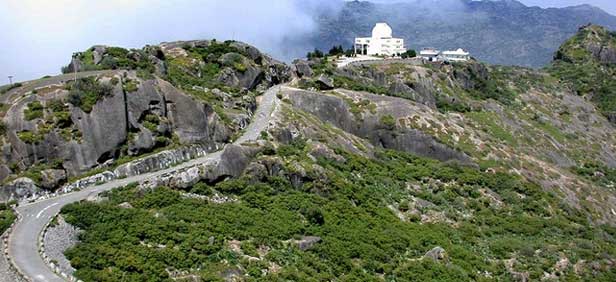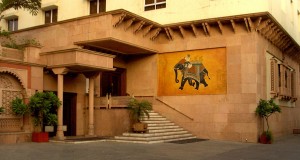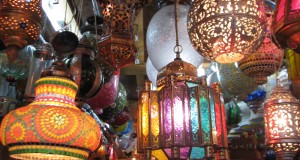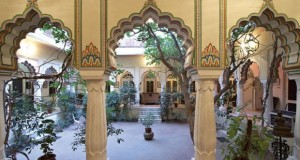Review Overview
3
Summary : Rajasthan's only hill station lies on a 1200-m high plateau, in pleasantly green and lush surroundings.
Rajasthan’s only hill station lies on a 1200-m high plateau, in pleasantly green and lush surroundings. Principally a place of pilgrimage, it has recently come up as a summer retreat for honeymooning Indian couples (mainly from nearby Gujarat) and is strongly geared to home tourism.
Abu derives its name from ‘Arbuda’, the serpent son of the Himalaya who rescued Shiva’s bull Nandi from a watery grave. Hindus revere the site because the sage Vashishta, from whose sacrificial fire the four original Rajput warrior clans first sprang, had his home here, and also because of its Nakki Lake, said to have been dug by the sage Balam-Rasiya using just his ‘nakkhs’ or nails. Holy dips in the waters of Nakki are held to be as spiritually purifying as bathing in the Ganges. Great numbers of Jain pilgrims visit Abu too, primarily because of its world-famous Dilwara Temples, possibly the finest examples of Jain architec ture to be found in India.
An important religious centre since the times of Ashoka and before, Abu acquired its principal architecture and stone carvings only during the Parmer period, which came to a sudden end between 1302 and 1311 with the invasion of the Chauhans. Much later, the British purchased a site for a sanatorium here (1917), but Abu remained largely undeveloped and uninhabited until the home-tourist boom sud denly started in the 1970s.
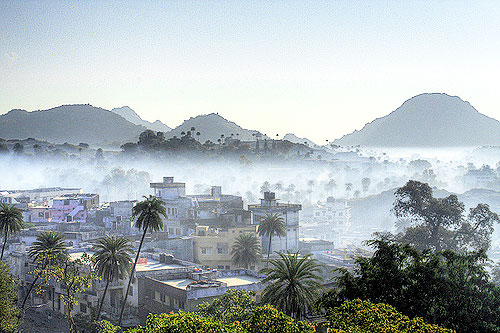
Abu is today the most Indian of all hill stations—a lively little place of ice-cream parlours, omelette and pau bhaji stalls, ‘fun’ and novelty shops, and an awful lot of ponies. There is a pretty lake, several good hill walks, a refreshing mountain breeze, and a festive party atmosphere. The sight of Indians abroad-laughing , joking, taking endless photographs, swarming to and from Sunset Point, genera ly having a ball—has Western visitors completely mystified. It’s not like India all. It’s not even like an Indian hill station: there’s no hassle, no dirt, no drugs , and no unemployed refugees. The very worst or best thing that can happen you at Abu is being adopted by an Indian family and deluged with food and presents throughout your stay. They just love foreign tourists here, partly because they see so few of them. And their cordiality and friendship is genuinely infectious. Abu is most pleasant from March to June, and from September to November. Avoid Bay -June when it’s overcrowded, and the October Diwali festival (D-Day and Christmas rolled into one). Aim for March/April—quiet, relaxing, and half-price accommodations.
WHAT TO SEE As hill stations go, Abu is very small and self-contained. You can get around very easily on foot, and walking is nearly all on the flat—there’s none of that endless tramping up and down steep steps and winding declines that exhausts visitors to Darjeeling or Shimla. Also convenient, most restaurants and hotels, plus post office, bus-stands and tourist office, are all on the main road. This is directly in front of you as 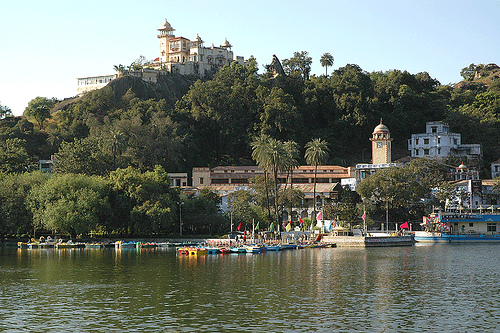 yi step off the bus. At the bus-stand, you’ll be met by Abu’s baba-gadis (porters) with heir brightly coloured prams, eager to wheel your luggage off to your hotel for srlep upee or two. Later, their day’s work done, they climb into their prams and go to Abu’s main sights and activities can be covered comfortably in a day—but stay n se nd day to pick up on the fun atmosphere. See all the pilgrimage places, Mel …itding the Jain temples in the morning, by conducted tour (often crowded, boo s soon as you arrive); leave the local walks and activities for the afternoon. ;et …ound locally on foot, by pony, or by taxi/ambassador car (fixed charge for all journeys).
yi step off the bus. At the bus-stand, you’ll be met by Abu’s baba-gadis (porters) with heir brightly coloured prams, eager to wheel your luggage off to your hotel for srlep upee or two. Later, their day’s work done, they climb into their prams and go to Abu’s main sights and activities can be covered comfortably in a day—but stay n se nd day to pick up on the fun atmosphere. See all the pilgrimage places, Mel …itding the Jain temples in the morning, by conducted tour (often crowded, boo s soon as you arrive); leave the local walks and activities for the afternoon. ;et …ound locally on foot, by pony, or by taxi/ambassador car (fixed charge for all journeys).
WHERE TO STAY Before the mid-April tourist rush, most of Abu’s hotels offer generous 30-50% discounts. After that, prices soar and you can’t (unless you advance-book) find a decent room for love or money. At any time of the year, the better hotels are full of noisy honeymooning couples, so take earplugs.
Mid-range/Expensive (US$10-35/Rs250-1000 per room night) If you want a good night’s sleep, book into Hotel Hilitone (tel 3772-5, tl 0365-2700), opposite the bus-stand. Refreshingly quiet, it has a number of useful three-star facilities: lovely gardens, good room service, smart, courteous stalls , nice restaurant, even a complimentary shoe-shine. Rooms are well-priced at Rs450 single, Rs700 double, and you’ll want one on the 2nd floor, with sun-bal cony. To live in the style of the Raj, try Connaught House (tel 3360, cable, CONNAUGHT), a 5-minute walk up the hill opposite the bus-stand. This is typical British hill station house, formerly the private residence of Sir Donald Field (the PM of Jodhpur state), 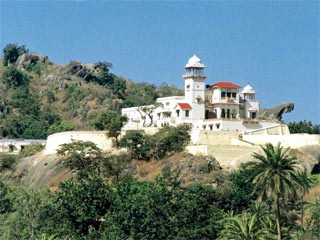 and now owned by the Maharajah of Jodhpur Attractions include nice gardens, traditional Rajasthani-style meals, and quaint cottage-style rooms (from Rs350), packed with Victorian memorabilia and period furnishings. For peace and quiet, ask for a new block room (wit verandah). For prestige, plump for Room 2 in the old block—this is where the Maharajah stays!
and now owned by the Maharajah of Jodhpur Attractions include nice gardens, traditional Rajasthani-style meals, and quaint cottage-style rooms (from Rs350), packed with Victorian memorabilia and period furnishings. For peace and quiet, ask for a new block room (wit verandah). For prestige, plump for Room 2 in the old block—this is where the Maharajah stays!
The similar Bikaner Palace (tel 3727, 3733) was once the summer residence of the maharajah of Bikaner, and has delightfully antique rooms from Rs450. It’s rather out of the way, being 3 km (2 miles) north-east of town, towards Dilwara temples, and oiften heavisly boked. If the above places are ful, it’s a big step down to Savera palace, Sunset Rd (tel 3354), with its ethnic cave-decor rooms (Rs450 double), roller-skating rink (with ‘Automatic Baby Car’), steam bath (‘hot water pudle’), blaring videos in the TV lounge, and the only swimming-pool in town. The Savera offers three-star facilities, and has no-star service.
More cheaply, Hotel Madhuban (tel 3727), next to the Hilitone. Friendly and comfortable, it has nice single/double rooms for Rs350. Alternatively, there’s I unt Hotel, Dilwara Rd (tel 3755), with good-value doubles from Rs250 to 450, and a superb restaurant. Mount Abu Hotel, Mount Rd, also has good food and is owned by friendly Parsis. RTDC Hotel Shikkar (tel 3729, 3769) has rooms and independent cottages from Rs250.
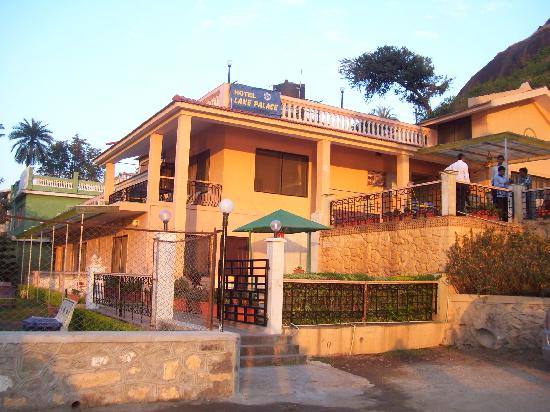
Budget (under US$1O/Rs250 per room night) One of the really strange things about Abu is the lack of good hotels near beautiful Nakki Lake. The only one worth a mention is Hotel Lake View (tel 3240), with Idly management, a few lake-view rooms, and a monkey on the roof at 6 am, serving breakfast. Back in town, budget accommodation is pretty grim. Hotel Surya I has (tel 3765), near the taxi-stand, is undeniably seedy. But it does have some op-floor doubles for Rs700 , overlooking the polo-ground.
EATING OUT only ‘traditional’ food (actually a Bombay import, like the omelettes) is pall savoury vegetarian snack (tomatoes, potatoes, spices and lemon tossed about in a banana leaf, generally eaten with buttered toasted rolls) best sampled at big open-air place beyond the Hotel Maharajah. Abu actually has a wide range INDIAN cuisine, catering to its wide cross-section of Indian tourists. Thus, Bom- I have their omelette/paU bhaji stalls; Tamils have their dose/thali places (try Cafe next to Cha Cha Museum South Indian snacks, ice-cream, and coffee); gujaratis dine out at Hotel Sarswati in front of the polo-ground for amazing Gujratis thalis ), or at Kanak Dining Hall near the bus-stand; Punjabis enjoy tasty non veg snacks at Sher-Punjab; and Rajasthanis tuck into spicy ‘desert food’ at I r Bhoj Nalay (signed in Hindi), opposite Abu’s popular Government Beer shop his establishment serves cheap chilled beer from 70 am to 70 pm, and is I 11 next to the police traffic circle, facing onto the polo-ground. Chinese food Iin the small restaurant next to Gujarati Travels. Western food is a real rarity, HiIltone Hotel’s excellent Handi restaurant with its airy outdoor section, you enjoy continental ‘sizzlers’ along with a bottle of ‘Drought Beer’—very aptly view of Abu’s perennial water shortage.
coffee); gujaratis dine out at Hotel Sarswati in front of the polo-ground for amazing Gujratis thalis ), or at Kanak Dining Hall near the bus-stand; Punjabis enjoy tasty non veg snacks at Sher-Punjab; and Rajasthanis tuck into spicy ‘desert food’ at I r Bhoj Nalay (signed in Hindi), opposite Abu’s popular Government Beer shop his establishment serves cheap chilled beer from 70 am to 70 pm, and is I 11 next to the police traffic circle, facing onto the polo-ground. Chinese food Iin the small restaurant next to Gujarati Travels. Western food is a real rarity, HiIltone Hotel’s excellent Handi restaurant with its airy outdoor section, you enjoy continental ‘sizzlers’ along with a bottle of ‘Drought Beer’—very aptly view of Abu’s perennial water shortage.
GENERAL INFORMATION office (tel 3757), opposite bus-stand, is open odd hours (8-77 am; 4-8 pm), Doesn’t quite know what to do with Western tourists. Its half-day minibus tour pm, or 7.30 pm-sunset) gets very mixed reports. post office is on Raj Bhavan Rd, open 70 am-5 pm except Sundays. State Bank nearby, but Hotel Hilltone gives a better rate of exchange.

